Gallery: 10 Android apps that make use of your device’s built-in sensors
Image 1 of 11


It's an amazing tool: Use it!
It's an amazing tool: Use it!
The pocket of the average person contains more computing power than was available to the entirety of NASA when it landed humans on the moon in 1969. But what does that computing power get used for?
Not nearly as much as it can.
Smartphones pack some amazing hardware, and a lot of it performs tasks invisibly without the slightest bit of user interaction. Gyro sensors, barometers, geomagnetic sensors–those are a few of the components packed into the modern smartphone (available sensors differ per model).
Here are 10 apps that turn your Android phone into the closest thing we have to a modern-day Star Trek Tricorder.
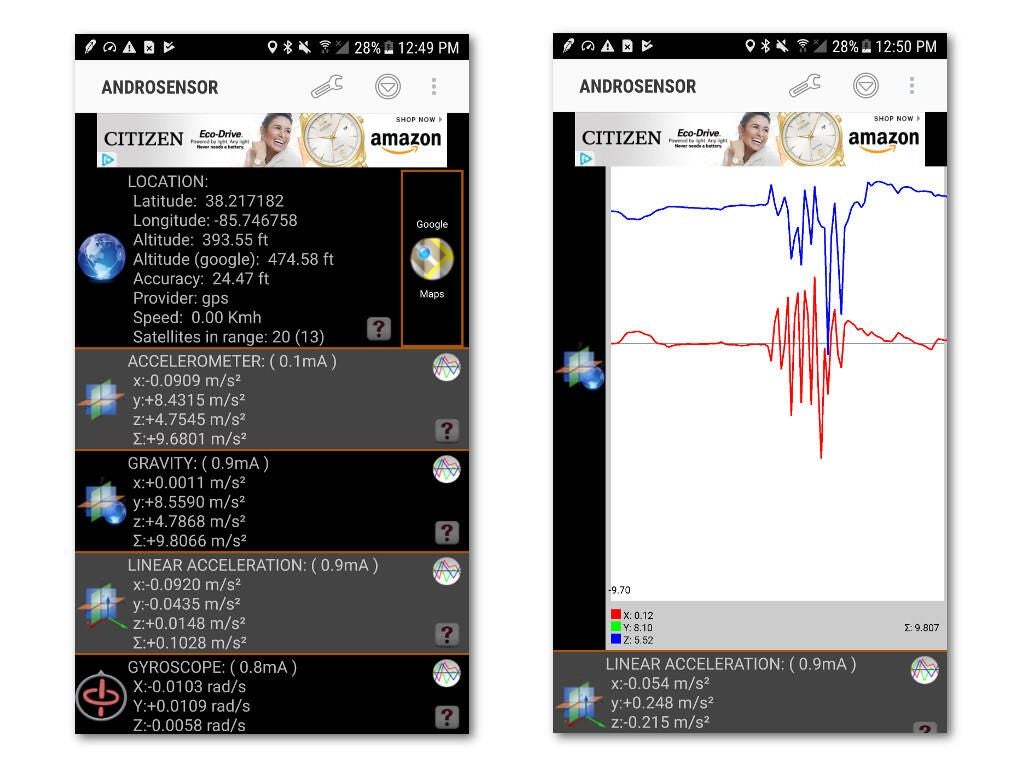

1. AndroSensor
1. AndroSensor
Consider this app your one-stop app for learning all about what your phone has to offer. It’s a single screen that lists all the information coming from your sensors, can show graphs, and gives you details about what the individual sensors do.
It isn’t the sort of app you’d use to actually find particular data from your phone, but it can give you an idea which sensors your device has and whether they’re working properly.
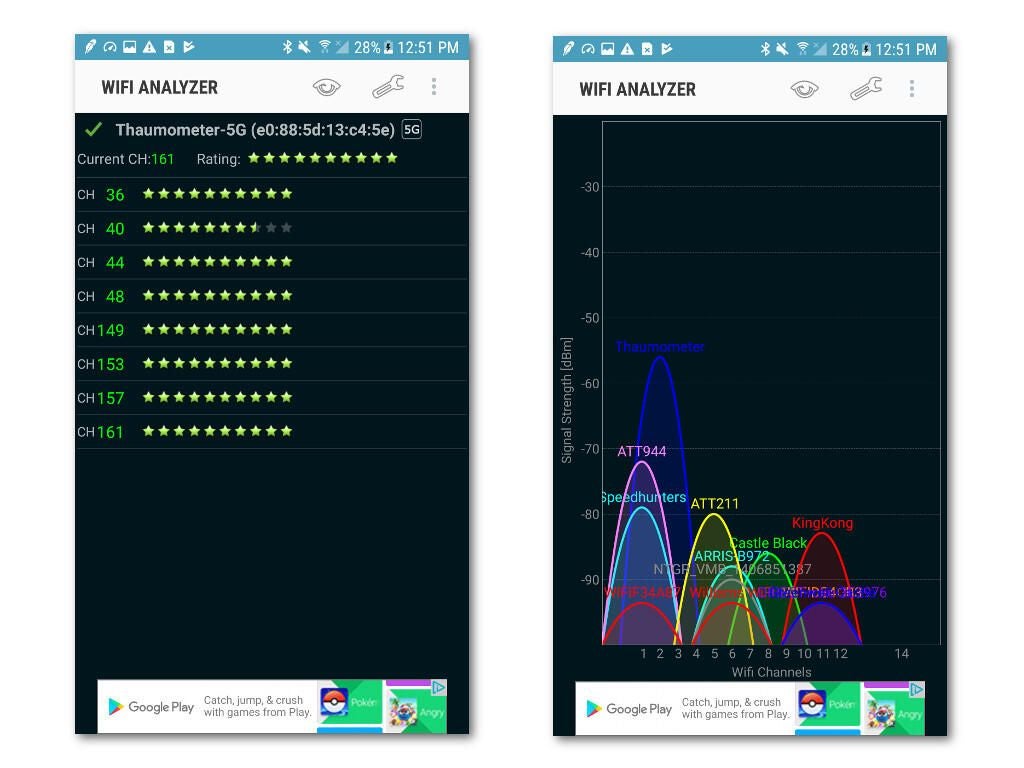

2. Wifi Analyzer
2. Wifi Analyzer
Knowing what’s going on with a Wi-Fi network is important for IT professionals, and it’s a good thing for consumers to have access to as well. Wifi Analyzer provides tons of information about wireless internet networks at your location, including signal strength, which channels should be avoided, lists of all the APs your phone can reach, and other essential data.
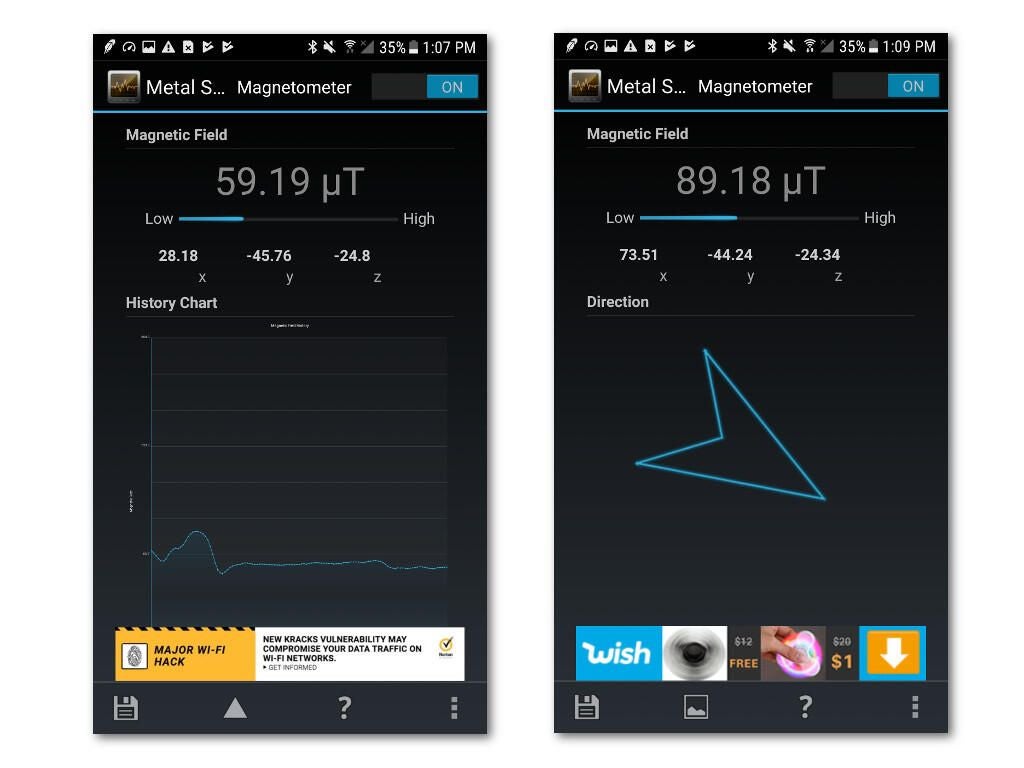

3. Metal Sniffer
3. Metal Sniffer
Don’t expect to toss away that expensive metal detector for trips to the beach: Your phone just isn’t that powerful. What Metal Sniffer can do is find magnetic fields from the powerful (magnets) to the undetectable (a nail hidden behind drywall). There’s no need to have a stud finder anymore–your phone can do it.
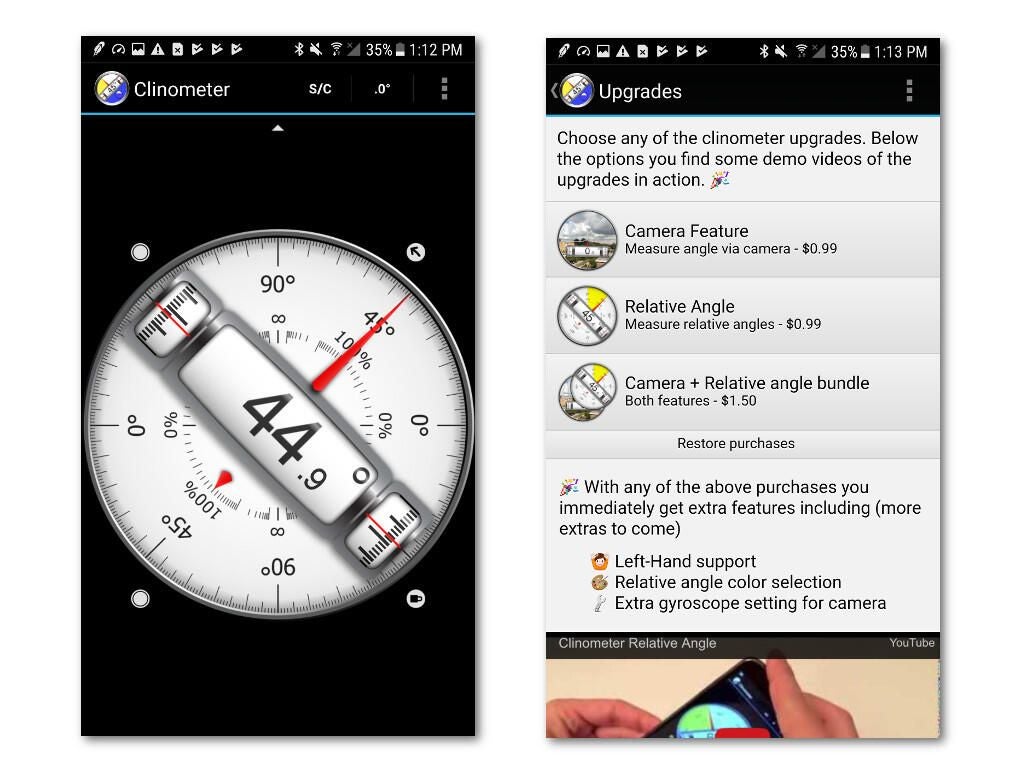

4. Clinometer
4. Clinometer
I was having problems sharpening a knife on a whetstone, so I looked up online what angle I should have the blade at relative to the stone. I then used Clinometer to tilt my phone to the appropriate angle so I was able to get the perfect visual of what I needed to be doing.
This app can do surface level and angles for free, and with a $1.50 one-time in-app purchase it can also do relative angles and measure angles using the camera. I highly recommend it–having that ability in your pocket is incredibly useful.
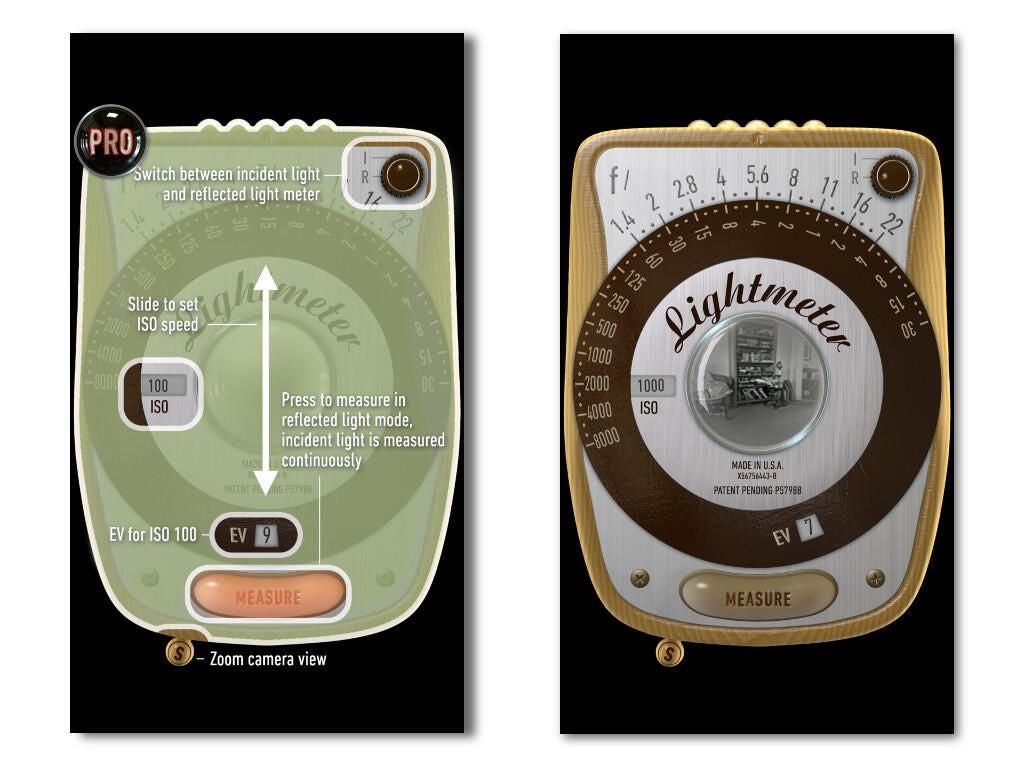

5. LightMeter Free
5. LightMeter Free
This nifty little app replicates the look of an old-school analog light meter, but using the light sensor and camera of your smartphone. It can do both incident and reflected light, making it a great tool to replace that old photometer.
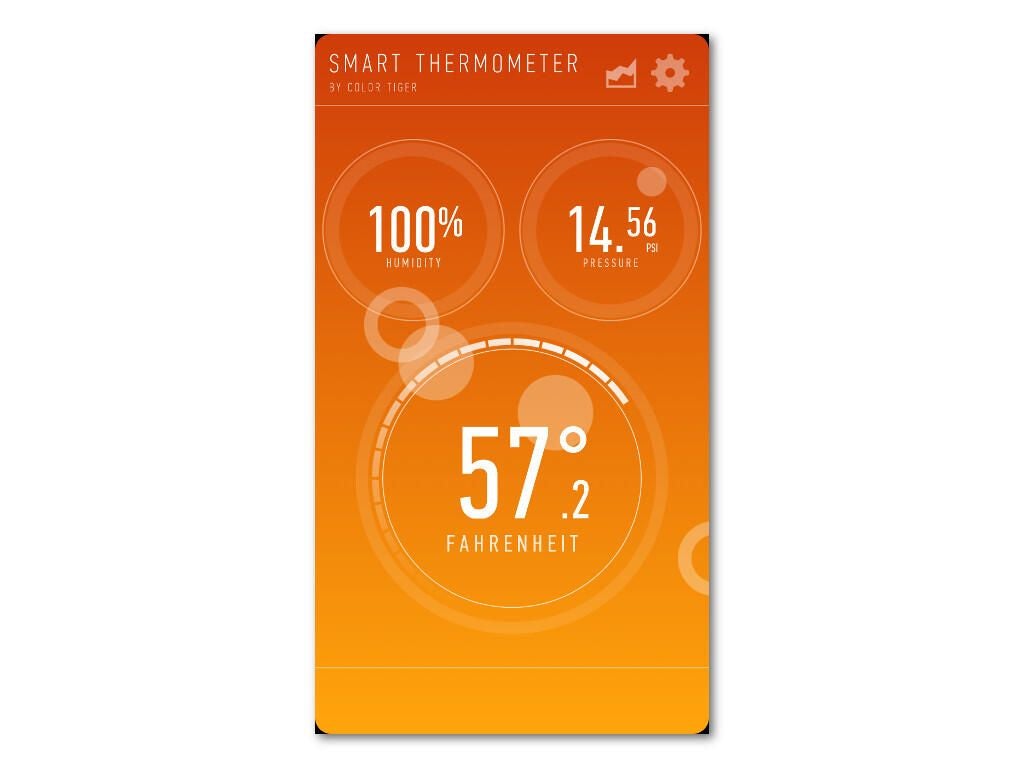

6. Smart Thermometer
6. Smart Thermometer
If your Android device has an air temperature thermometer (and that’s a big if–they aren’t too common) you can get real-time readings with Smart Thermometer. Without a sensor it just displays the current local temperature like any other weather app, so if trying to refresh it isn’t working you probably don’t have an air temperature sensor in your device.
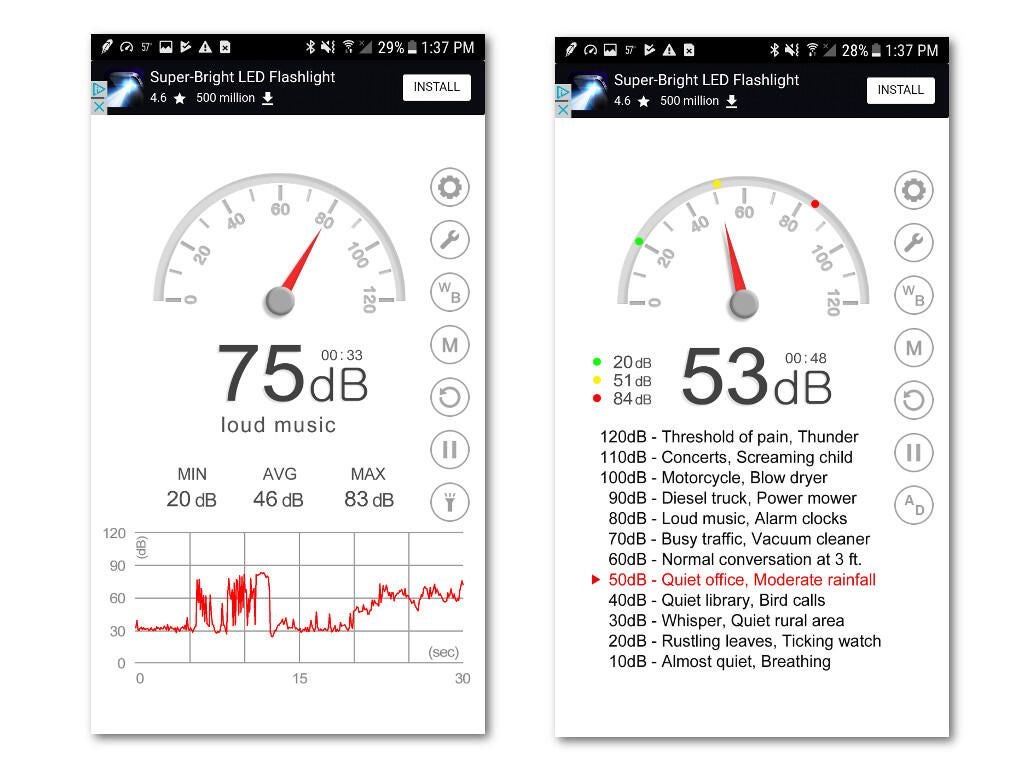

7. Sound Meter
7. Sound Meter
It’s always a good idea to know how loud your environment is, and Sound Meter makes it easy to not only chart the noise level, but also to compare it to other noises. It can also be fun to challenge your friends to a shouting contest to see who really is the loudest. Earplugs recommended.
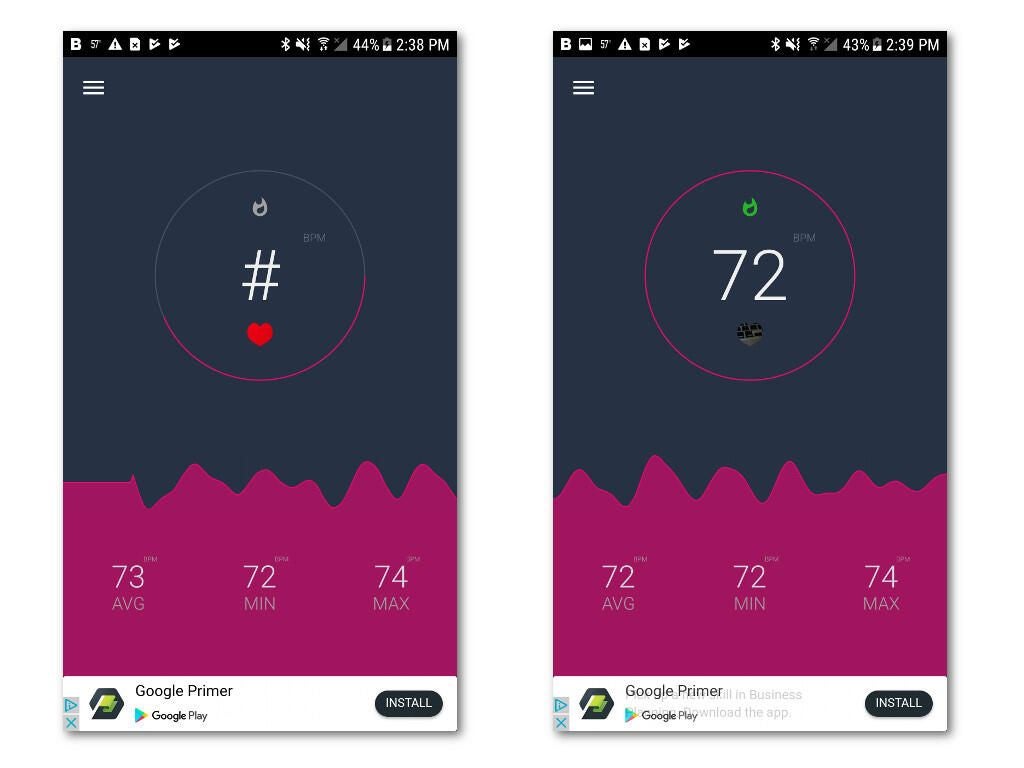

8. Heart Rate Monitor
8. Heart Rate Monitor
Only a few flagship devices, namely Samsung’s Galaxy S and Note series, come with actual heart rate sensors. That doesn’t mean your device isn’t capable of sensing your heart rate, though.
Heart Rate Monitor was able to use the camera and flash to measure my heart rate accurately, or at least as accurately as the actual heart rate sensor on the device (Samsung Galaxy S7) did. If you have a Samsung device you can use Samsung Health to activate the heart rate sensor, but for those without a dedicated heart rate sensor, apps like this one can still do the job.
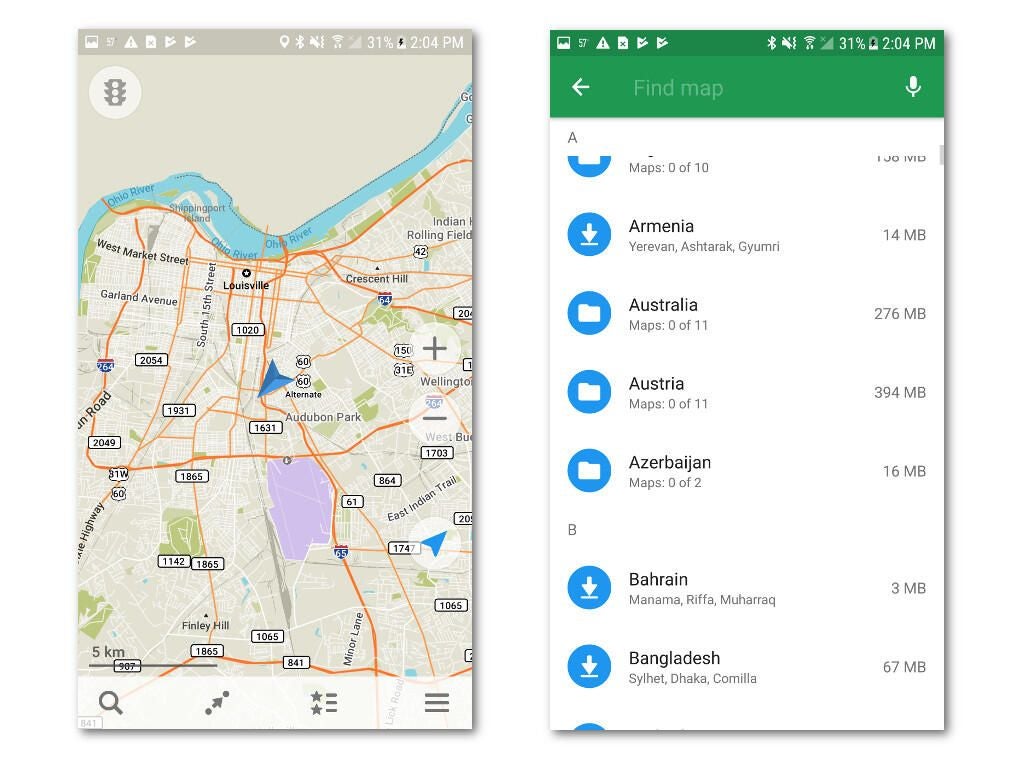

9. Maps.Me
9. Maps.Me
I really like Maps.Me: It has an intuitive interface just like stock map apps, and you can download regions so that you can make use of your GPS sensors when you don’t have a data connection.
I highly recommend it not only for its perfect use of your GPS sensors, but because you never know when you’ll get lost without a data connection.


10. Physics Toolbox Sensor Suite
10. Physics Toolbox Sensor Suite
Individual apps that specialize in the use of a particular sensor can do some cool stuff, and depending on your needs they may be more appropriate. Physics Toolbox Sensor Suite rolls a bunch of sensors into one app, and its capabilities are a good choice if you want an all-in-one.
It uses sensors to measure all sorts of typical things, like acceleration, magnetic fields, barometric pressure, and the like. But it also has a bunch of neat features like a color detector, tone detector, oscilloscope, tone generator, and color generator. Those might not be sensor features per se, but they do make the Physics Toolbox Sensor Suite worth installing to get lots of good data about the world around you, even if it’s just “which tone annoys the dog most.”
-
-
Account Information
Contact Brandon Vigliarolo
- |
- See all of Brandon's content